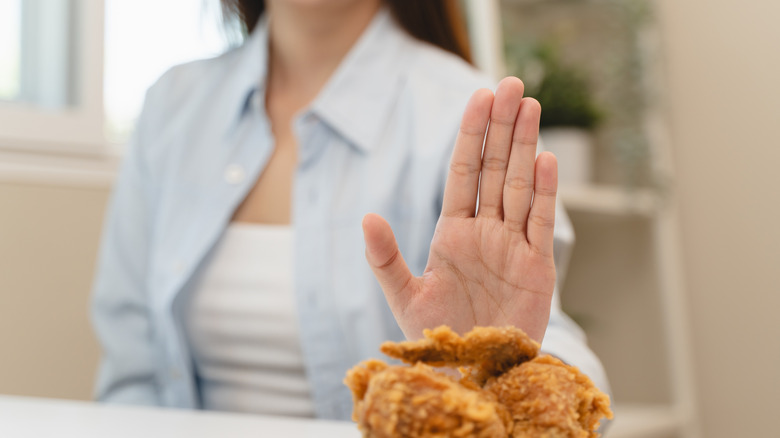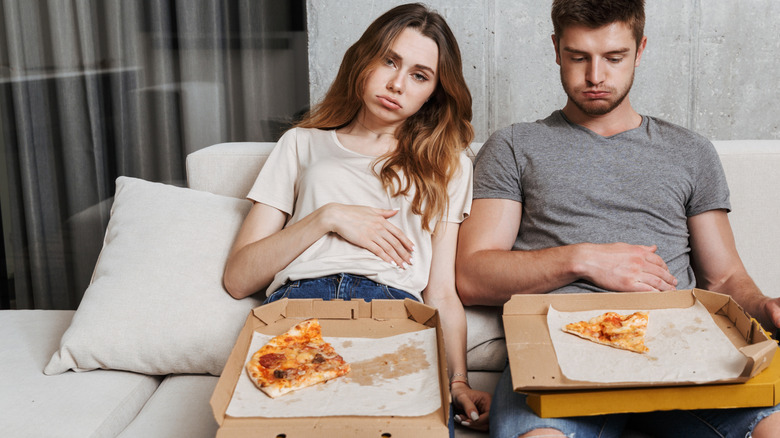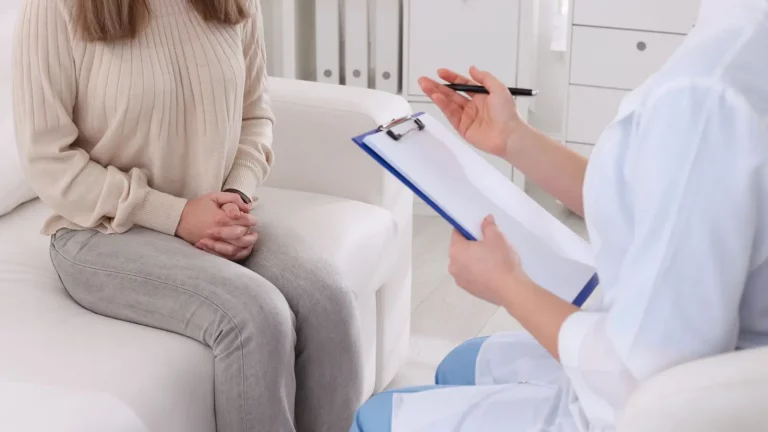
“Your stomach will shrink if you eat less.” Sound familiar? It’s a commonly held belief among dieters. But it’s also a medical myth, although your stomach may change in a different way if you shed some weight.
Why, then, does it seem like you start to feel full much sooner after you begin to eat smaller meals to get the weight loss benefits of portion control? To fully understand what’s really going on and why it may seem like your stomach is smaller than before, let’s consider its normal shape and functions.
The average adult stomach is designed to hold around 2.5 ounces. That’s approximately the size of your fist. But your stomach can stretch many times to accommodate about 32 ounces of food if needed. That’s why you can eat a seriously big Thanksgiving dinner and live to tell the tale! As your stomach empties (which can take up to four hours to complete, especially after a hefty meal), it returns to its normal size until it needs to expand again.
As to why your stomach can hold much less after you start eating fewer calories and lose pounds, blame it on the reactions caused by a couple of hormones.
Same size, different capacity

As explained by gastroenterologist Dr. Maged Rizk for the Cleveland Clinic, your feelings of fullness aren’t necessarily related to the food volume in your stomach. Instead, they’re connected to ghrelin and leptin, hormones that control hunger and appetite (e.g., they are how you know you’re full.)
When you consistently limit your food intake, ghrelin and leptin learn to send earlier triggers that tell you it’s time to stop eating. Therefore, you may have more trouble overeating because your body tells your mind to be satisfied with less. Dr. Mark Moyad noted that this phenomenon was akin to resetting the “appetite thermostat” (via WebMD). Essentially, you’re reprogramming your body’s responses. But it may feel as if your stomach has shrunk.
This doesn’t mean your stomach isn’t undergoing any physical transformations, though. The stomach may lose some of its elasticity as a result of a restrictive dieting plan. This occurrence has been documented in clinical experiments, including a 1996 study published in the American Journal of Clinical Nutrition. As part of the study, the maximum stomach capacities of obese adults were measured. (Maximum capacity meant how much the stomach could stretch to accommodate as much food as possible.) Afterward, the subjects were placed on a low-calorie diet for four weeks. At that point, their maximum stomach capacities were measured again and found to be able to hold 27% less than before.
Small stomach, big appetite

Of course, a medical procedure like gastric bypass surgery can make someone’s stomach so small that it’s only walnut-sized. Yet even if you had a smaller stomach than your peers, you wouldn’t necessarily be able to lose weight easily. It’s possible for people with very small or even completely removed stomachs to gain weight, as outlined in a 2012 article in Clinics.
The article noted that even wild animals sometimes continue to eat despite being full, positing that this type of “gluttony” may be an evolutionary reaction to potential future food scarcity. That is, they fill up while they can in case their next meal doesn’t come anytime soon.
The article asserts that humans can end up doing likewise by mindlessly overindulging regardless of the size of their stomachs or how full they may be. As the article continues, even people without a stomach pouch may still gain significant amounts of weight because of this very natural propensity toward eating extra calories, despite realizing what happens to your body when you always eat until you’re full.
The takeaway? Your stomach won’t get tinier when you lose weight. Consequently, you can’t rely on it to signal you to stop eating. But if your appetite hormones make you feel full after eating a modest amount of food, it won’t matter. You’ll still end up shrinking, even if your stomach doesn’t.
“`




